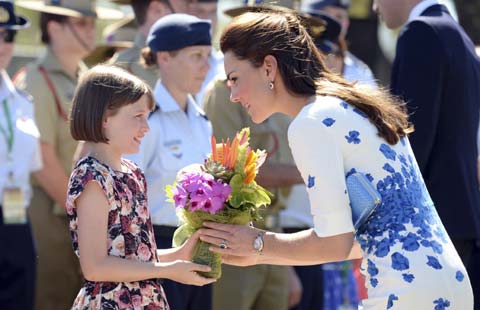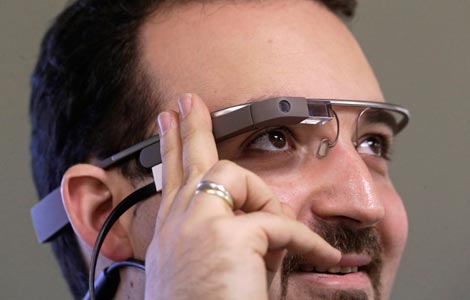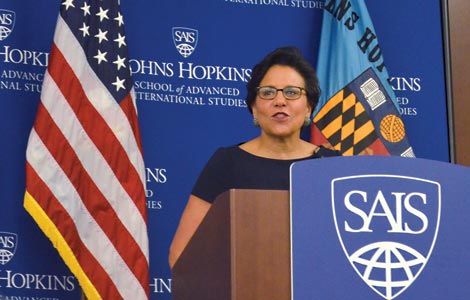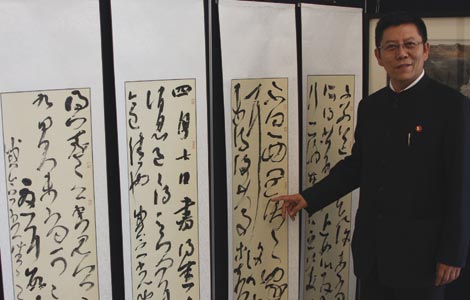Legal experts call for special courts
Updated: 2014-04-21 07:24
By Cao Yin (China Daily)
|
||||||||
Judges and legal experts have called on the central government to provide specific measures to establish a special court to hear intellectual property rights cases as soon as possible.
With a rapidly increasing number of IPR disputes in recent years, especially those related to patents, a court to hear such lawsuits is needed, said Jiang Ying, senior judge of the IPR department at the Beijing No 1 Intermediate People's Court.
"Such a court will make IPR trials more professional and enhance communication among judges," said Jiang, who has more than 20 years of experience.
Earlier this year, Jiang's court formed a comprehensive tribunal that tackled only IPR cases.
Previously, only IPR civil cases were heard by Jiang's department but now criminal and administrative disputes can also be taken to the tribunal, in a pilot program proposed by the central government in 2008, she said.
By the end of last year, such tribunals had been set up in seven high people's courts across the country, as well as in 79 intermediate people's courts and 71 grassroots courts, according to figures provided by China's top court.
However, the numbers are far from enough, as IPR disputes have also soared, the top court said.
For example, Jiang's court received more than 3,000 such cases from January to March, a fourfold increase year-on-year, but only has 83 judges.
Technological knowledge, about such things as computers, chemistry and medicine, is also a major challenge for IPR judges, she said.
Wang Chuang, deputy chief judge of the intellectual property rights tribunal at the top court, said it would help if judges could become "technology specialists".
"IPR cases have much in relation with technical innovation, so the disputes involving new technology will also urge us to study it," Wang said. "But learning all of these subjects isn't practical, because the time taken will affect trial efficiency."
High people's courts in Hubei and Zhejiang provinces have invited some experts to act as advisers for the courts. Judges are also allowed to ask specialists to explain technological knowledge during trials, under the current Civil Procedure Law.
Centralizing a database of such experts could boost trial efficiency and make trials more professional, Wang said.
IPR cases in China may be tackled in any of three different courts at present, he said, giving as an example a man accused of selling fake brand-name bags.
The man may be suspected of brand infringement and counterfeit purchase, "but he may be charged in a court responsible for hearing his criminal action and sued in another court for the civil aspect", Wang said.
"It's not convenient and is a waste of time and judicial resources," he said, which is why he suggested setting up an IPR court that can centralize verdicts and improve judicial discussions among the judges involved in each case.
Wang said he was glad to see that the establishment of an IPR court was mentioned in a key decision made during the Third Plenum of the 18th Central Committee of the Communist Party of China in November, and written into the top court's work report issued in March.
The time might be ripe to push these efforts forward, he said, adding that some related studies have been developed by the central government.
However, Liu Yinliang, an associate law professor at Peking University, said it would be most practical to create a patent appellate jurisdiction for growing disputes.
"The US has more than 30 years of experience in patent appellate jurisdiction, which we can learn from. If such a jurisdiction is established, I think, IPR disputes will be reduced to some extent," Liu said.
"After all, the setting up of an IPR court takes a long time and isn't work only for judicial organs," he said.
Contact the writer at caoyin@chinadaily.com.cn

 In photos: cars dazzle at Beijing Auto Show
In photos: cars dazzle at Beijing Auto Show
 Multinational drill to be held in East China port city
Multinational drill to be held in East China port city
 William, Kate visit Australian air force base
William, Kate visit Australian air force base
 Top 10 Chinese Internet firms eyeing IPOs in US
Top 10 Chinese Internet firms eyeing IPOs in US
 Google glass making profits in China
Google glass making profits in China
 BlackRock licensed to invest further in China using yuan
BlackRock licensed to invest further in China using yuan
 US Commerce chief vows trade growth
US Commerce chief vows trade growth
 UN hosts Chinese Language Day
UN hosts Chinese Language Day
Most Viewed
Editor's Picks

|

|

|

|

|

|
Today's Top News
Chinese naval chief won't meet Japanese officials
Charges near over China kickbacks in car exports
S. Korean ferry death toll at 64
Malaysia jet in emergency landing
New human H7N9 case reported
China on frontlines of cyber threat
China raises alert against cancer
Sunken ferry relatives give DNA swabs to help identify victims
US Weekly

|

|







